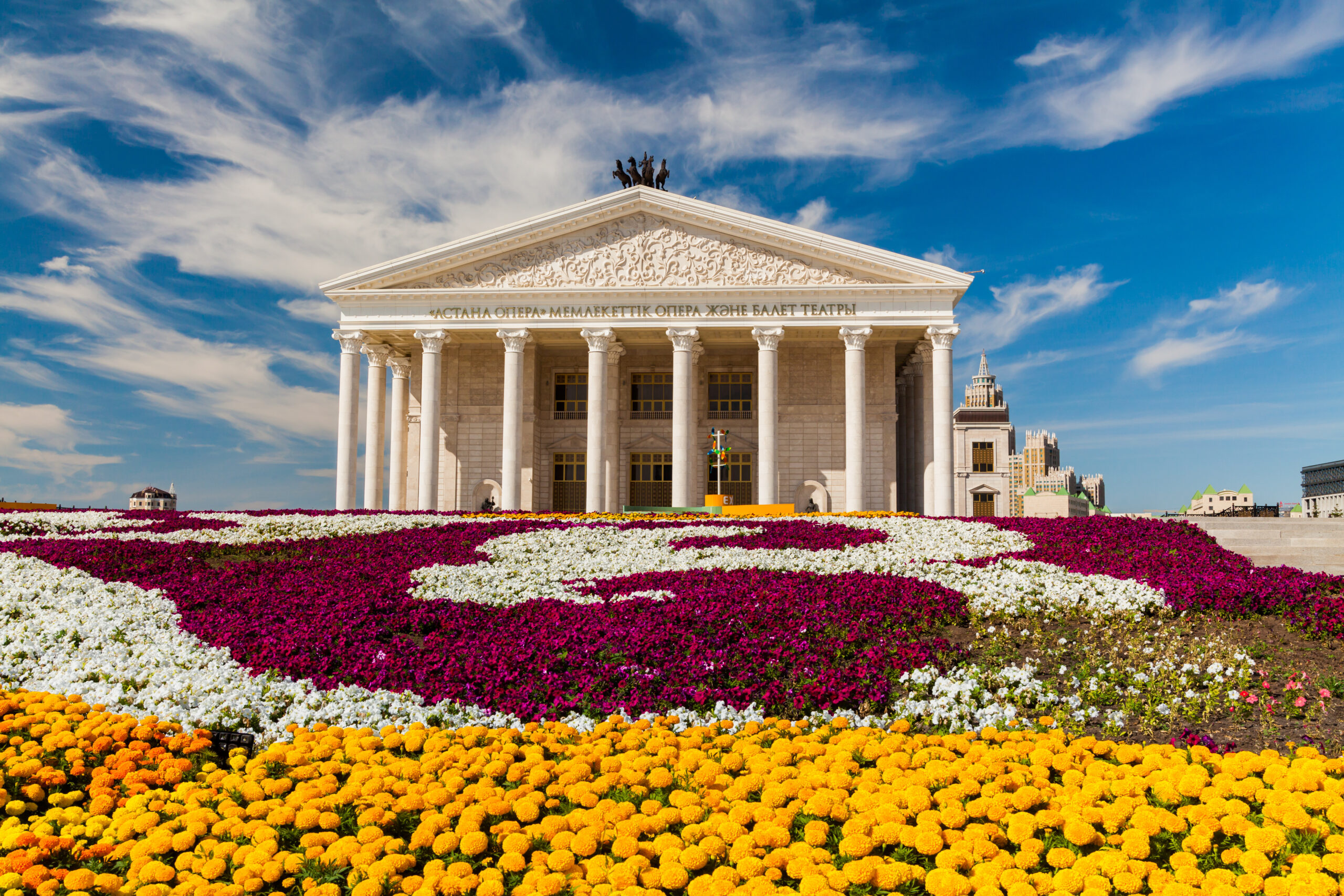ASTANA – The Astana Times has picked a selection of articles on Kazakhstan published in international media across the world. This week’s foreign media digest includes articles on the Central Asian Security and Cooperation Forum, Kazakhstan’s foreign direct investment (FDI) inflow growth, Kazakhstan’s SCO chairmanship and more.

Astana Opera. Photo credit: Shutterstock.
Kazakhstan tops FDI inflow for 2022 among post-Soviet states
The Economic Times released an article on July 11 on Kazakhstan receiving the largest FDI inflow among the post-Soviet countries, according to a report by the United Nations Conference on Trade and Development.
“The country’s net FDI inflow in 2022 was reported to be $6.1 billion, which is up from 2021, and the highest in five years. Overall, net FDI inflows to Central Asia reached $10 billion, of which Kazakhstan contributed 61%,” the article reads.
Central Asian Security and Cooperation Forum begins
Foreign Brief, an industry-leading source of geopolitical risk insights, published an article on July 13 covering the Central Asian Security and Cooperation Forum in Astana.
“The two-day forum will mainly study challenges facing Asia’s global security. Such challenges are brought by innovations, such as artificial intelligence technology, which can undermine national security. The forum will form a platform for dialogue between scholars from 25 different countries in the region,” the article reads.
Embracing leadership: Kazakhstan’s presidency of Shanghai Cooperation Organization in 2023
Eurasia Review released an article on July 12 examining Kazakhstan’s presidency of the Shanghai Cooperation Organization (SCO) from July 2023 to July 2024, highlighting its efforts to address regional challenges, foster cooperation among member states, and promote regional stability and development.
“Kazakhstan’s upcoming presidency in the SCO presents an important opportunity to advance regional cooperation, strengthen ties among member states, and address emerging challenges. By focusing on regional security, economic integration, cultural exchanges, and partnership building, Kazakhstan can further enhance the SCO’s role as a platform for dialogue, cooperation, and stability in Central Asia and beyond,” the article notes.
Kazakhstan sets reform agenda for Shanghai Cooperation Organization
Kazakhstan will use its chairmanship of the SCO to promote reforms aimed at turning the group into a “practical and effective platform” for expanding trade and security cooperation, according to an article in Eurasianet, quoting a Kazakh Foreign Ministry statement.
“Kazakh officials also highlighted a need to step up joint action to address environmental challenges and promote closer ties in the digital sphere. SCO Secretary General Zhang Ming endorsed Kazakhstan’s agenda for 2023-24, expressing hope that Kazakhstan can take the SCO to a new level of practical interaction for the prosperity …of the peoples of our countries,” the article reads.
Kazakhstan sharply increases export of fossil fuels to EU
The value of Kazakhstan’s exports of fossil fuels and related materials to the European Union increased by 65.15% in 2022 compared to 2021, Trend reported on July 11.
According to Eurostat, the statistical office of the EU, Kazakhstan exported fossil fuels and related products to the EU worth 26.1 billion euros ($29.2 billion) in 2022, while in 2021 this number stood at 15.8 billion euros ($17.6 billion).
“Overall, the EU is Kazakhstan’s biggest trading partner. In 2022, the trade turnover between the EU and Kazakhstan reached 40.2 billion euros ($44.9 billion), a 74% increase in 2021. The EU is also one of the largest foreign investors in Kazakhstan, with the investment value reaching $12.5 billion in 2022 (a 23% increase year-on-year),” the article reads.
OSCE organizes explosive ordnance disposal course for Kazakhstan, Serbia, Tajikistan, Turkmenistan, Uzbekistan
A three-week Regional Explosive Ordnance Disposal Course (EOD level one) started on July 10 at the Regional Explosive Hazards Training Centre of Tajikistan’s Ministry of Defense in Chimteppa, outskirts of Dushanbe, reported the Mirage News, Australia’s media portal on July 11.
“Sixteen specialists from Kazakhstan, Turkmenistan, Tajikistan, Uzbekistan and Serbia will attend the course. … The activity aims to develop the competencies and enhance the qualifications of military personnel from Central Asia in locating, exposing and destroying in situ, in a controlled environment such as a technical survey and/or clearance site, single items of mines, and specific explosive remnants of war,” the report reads.

